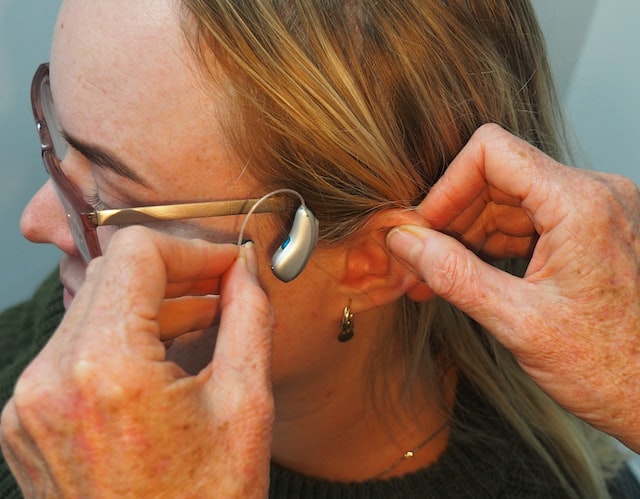Have you ever wondered what audiology is all about? It’s more than just diagnosing and treating hearing loss. Audiology is a comprehensive healthcare field that deals with preventing, diagnosing, and managing hearing and balance disorders. From newborn hearing screenings to fitting hearing aids and cochlear implants, audiologists play a vital role in ensuring that individuals with hearing and balance issues receive the best possible care.
In this article, we’ll take a closer look at the various aspects of audiology beyond hearing loss. We’ll explore the different services offered by audiologists, the importance of early detection and intervention, and the latest technological advancements in the field. Whether you’re someone who is experiencing hearing loss or just curious about audiology, this informative piece will give you a glimpse into the comprehensive care that audiologists provide.
Table of Contents
Understanding Hearing Loss
Hearing loss is a common problem that affects many people worldwide. There are three main types: conductive, sensorineural, and mixed. Conductive hearing loss happens when a problem in the outer or middle ear stops sound from reaching the inner ear. Sensorineural hearing loss is when the inner ear or the nerve that takes sound to your brain is damaged. Mixed hearing loss is a bit of both.
Lots of things can cause hearing loss, like getting older, loud noises, infections, and certain medicines. Knowing what type and how much hearing loss you have helps you figure out the best way to help.
More Than Just Hearing Loss
Audiology isn’t just about hearing loss. It covers lots of things to do with hearing and balance, which are important for how we communicate and move around. Audiologists take care of lots of stuff:
- Prevention: They help stop hearing and balance problems from happening by teaching you how to protect your ears from loud noises and infections.
- Evaluation: They do tests to determine if you have hearing or balance problems and determine what might be causing them.
- Diagnosis: Audiologists determine what is causing the problem so they know how to best help you.
- Treatment: They use different ways to help you, like hearing aids, balance exercises, and even surgery in some cases.
- Rehabilitation: If you need help adjusting to hearing aids or getting back your balance, audiologists are there to guide you.
- Collaboration: Audiologists work with other experts like doctors and speech therapists to give you the best care.
Why It All Matters
Audiology matters because it’s about more than just hearing – it’s about living your life fully. Not being able to hear well can make you feel alone and sad, and it can even affect your memory. Early help from audiologists can stop these things from happening.
The Role of an Audiologist
Audiologists are like ear and balance superheroes. They’re experts in ears, from how they work to what happens when they’re not working right. They work with people of all ages, from tiny babies to wise seniors, in different places like hospitals, clinics, and schools.
They do all kinds of things:
- Tests: Audiologists do hearing and balance tests to find out what’s going on.
- Help with Hearing Aids: If you need a hearing aid, they help pick the right one and make sure it’s set up just for you.
- Balance Boost: Audiologists help with balance exercises if you’re feeling wobbly.
- Communication Magic: They teach you ways to talk and listen better if you have hearing trouble.
- Tinnitus Taming: If your ears ring or buzz, audiologists have ways to make it better.
- Auditory Rehab: They guide you in using hearing aids and other tools to make sure you’re getting the most out of life.
What to Expect During Your Visit
When you meet with an audiologist, they will conduct a series of assessments to understand the status of your ears and balance. Firstly, they’ll inquire about your ears and overall health, gaining insight into your specific situation. Afterward, they will carefully examine your ears to ensure everything is in order. Utilizing specialized tests, they’ll evaluate your ability to hear various sounds and assess the stability of your balance.
Once these assessments are complete, the audiologist will have a clear understanding of your condition, enabling them to chart a course of action to enhance your well-being.
Better Communication with Hearing Aids
If you need a hearing aid, it’s like a magic tool that makes sounds louder and clearer. There are different kinds, like ones that go behind your ear or sit in your ear. Audiologists help you choose the right one for you. Hearing aids can even connect to your phone so you can hear calls and music better.
Future of Audiology
Audiology is always getting better because of cool new technology and research. In the future, you might be able to see an audiologist without leaving your home – that’s tele-audiology! The goal is to make sure everyone can get the care they need, no matter where they are.
Conclusion
Audiology isn’t just about hearing loss – it’s a whole world of care for your ears and balance. Audiologists help you with hearing aids, balance exercises, and even keeping your ears healthy. They’re here to make sure you can enjoy every sound and move confidently through life. Whether you’re dealing with hearing problems or just curious, understanding audiology gives you a glimpse into the amazing care audiologists provide.

